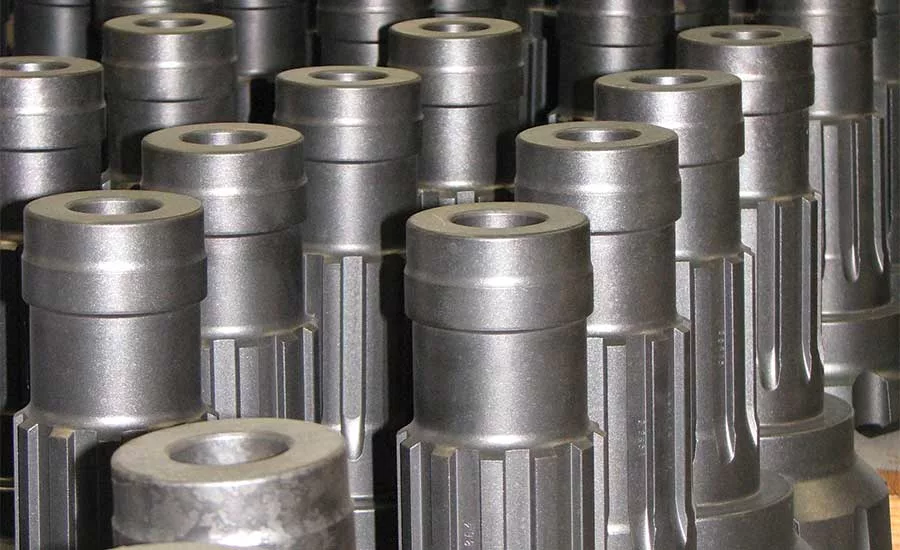Drilling Industry Needs to Be Ready for Steel Tariffs

When was the last time you bought something made from steel? If you’re a contractor, chances are your answer is, “last week.”
Source: Jeremy Verdusco
Do you use steel? Prepare for a bumpy ride, if you’re not already on the tariff rollercoaster. Tit-for-tat tariffs will have wide-ranging effects on the industry, regardless of opinions on the current resident of the White House.
First, some basics. What’s a tariff? Put simply, it’s a tax on goods crossing a border. That tax can apply to goods coming into a country or going out. Think about those duty-free shops at airports. Duties are a kind of tariff. That cheap bottle of liquor brought back from your trip to Cozumel? It was so cheap because the U.S. waives tariffs on goods bought at duty-free stores when those goods come into the U.S.
Manufacturers First
Drill pipe, bit and tooling makers are already bearing the brunt of new tariffs. I recently read a story about a small drill pipe manufacturer in Colorado. Like a lot of small outfits, he runs on a shoestring, so spikes in the cost of materials hurt. Drill pipe makers buy tubular steel, thread it and otherwise get it ready to sell to contractors. They buy it from all over: Canada, China, Mexico and elsewhere. If raw materials cost 25 percent more, that’s significant.
Think about how much steel goes into a rig: the truck and heavy-duty chassis and all of the components that go into the rig itself. Rig manufacturers, like their cousins on the tooling side, have a lot of steel inputs and, unless all of those inputs are domestically produced, they get more expensive the higher tariffs go.
Then, Their Customers
Most National Driller readers fit into the contractor category. Contractors, of course, make up the customer base for manufacturers of drill rigs, pipe and bits. Usually, when a manufacturer’s prices go up, that manufacturer passes those increases on to customers. That means contractors can expect, in the near term, to pay more for consumables and maybe for that next rig.
As a contractor, you have a choice: You can absorb those cost increases, or build them into your bids — essentially passing them on to your customers. Are your customers ready to pay more for the drilling services you provide?
Then, the Future
The goal of steel tariffs, ultimately, is to rebuild domestic capacity. It’s a worthy goal. But, there are a couple things to note when considering that goal.
First, automation. Steel jobs have plummeted over the last 50 years. But automation is the biggest factor. Much like the automotive industry, robots have cut the number of people it takes to manufacture steel. A foundry that might have required 100 people 50 years ago today needs 10 to produce the same output.
The second thing, we’ll call the Wal-Martification of supply and what it does to prices. When was the last time you paid $200 for a pair of jeans? For most people, the answer is never. But, if you want to buy jeans made by U.S. labor with U.S. cotton, that’s about what you’d pay. Wal-Mart and Target sell jeans for $30 because those jeans come in from China or Guatemala, which have much lower manufacturing costs.
The same thing applies to steel. If U.S. drill pipe makers pay U.S. foundries to employ U.S. workers, the resulting drill pipe could cost a lot more for contractors and, ultimately, their customers. The whole supply chain has to be comfortable with that to achieve the long-term goal of tariffs.
Many folks in the drilling industry applaud the president and his brash style. That’s fine. The tax cut passed early this year shows that he’s business friendly in a lot of ways. But tariffs aren’t a tax cut. The effects of tariffs, particularly once everyone starts retaliating with their own, are hard to control and harder to predict. Just ask Harley-Davidson.
In the long term, tariffs may end up as a net positive. But manufacturers and contractors may endure a lot of short-term pain to get there. The industry needs to be ready. We take a closer look at the effect of tariffs on the industry in this month’s cover story (page 12).
What do you think? Are steel tariffs good for the industry? Or could protectionist policies backfire on the U.S.? Tell us what you think. Send an email to verduscoj@bnpmedia.com.
Stay safe out there, drillers.
Looking for a reprint of this article?
From high-res PDFs to custom plaques, order your copy today!


